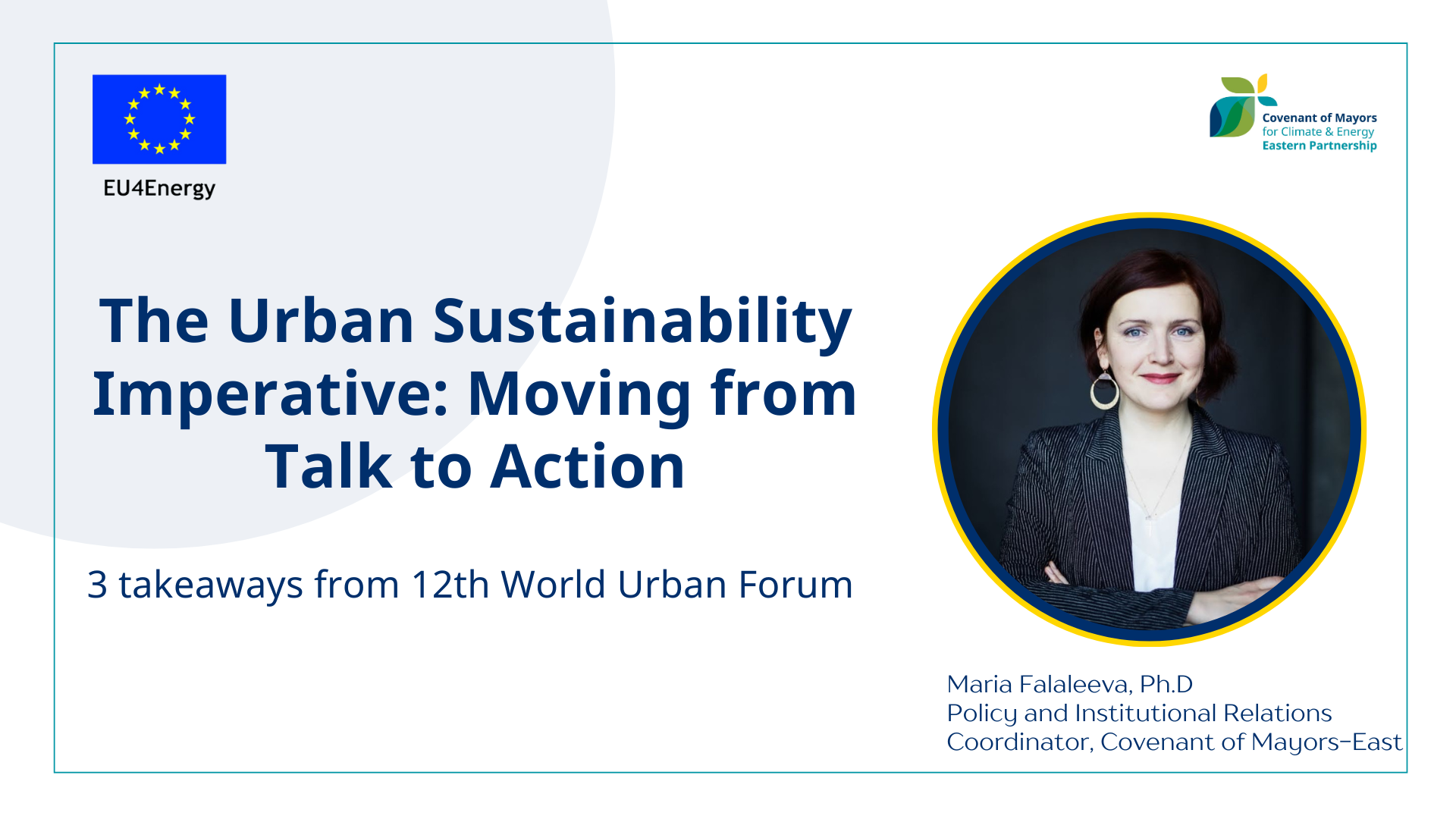Case studies, District heating, Municipal buildings and facilities, Others, RES, Residential buildings, Street lighting, Transport
The Urban Sustainability Imperative: Moving from Talk to Action

The 12th World Urban Forum (WUF12) in Cairo this November marked an important benchmark point in the global urban dialogue, drawing over 25,000 participants from 182 countries in person and online. Under the theme “It All Starts at Home,” the event demonstrated the growing urgency of sustainable urban development while revealing critical gaps between ambition and implementation.
Importantly, WUF12 exposed reality beyond the numbers: the time for theoretical discussions has passed. The solutions are known, and action must now follow.
While international agreements and national policies remain crucial, the fundamental transformation of cities happens at the local level. Current implementation efforts must catch up in three critical areas: multilevel cooperation, financing, and practical application of technological innovation and new urbanism principles.
The integration of urban development into national climate policies remains a challenge. A recent UN-Habitat report shows that among 194 Nationally Determined Contributions (NDCs), only 66% demonstrate strong urban content. To address this shortfall, the Coalition for High Ambition Multilevel Partnership (CHAMP) works to strengthen urban elements in NDCs as nations prepare for COP30.
Policy integration and strategic vision has particular importance to war-torn regions like Ukraine, where reconstruction efforts present both a challenge and an opportunity. Rebuilding efforts must avoid past mistakes of car-dependent urban sprawl and instead embrace sustainable urban models. The stakes are too high to repeat the errors of 20th-century urban planning.
Despite available global funding, financial barriers persist. Many cities struggle to access resources due to inefficient distribution channels. While national governments must support urban sustainability projects to build resilience and attract private investment, local authorities often face complex hurdles in securing loans and international financing. This misalignment between available funds and local access continues to impede urban transformation efforts.
Emerging technologies, particularly AI, offer promising solutions for urban planning and management. However, legitimate concerns about data security and governance require attention. The question isn’t just about collecting data but about using it responsibly and effectively to create more livable cities.
The path forward requires three key actions:
– First, streamlining access to green financing for local governments.
– Second, national governments must thoroughly integrate urban development into their climate policies.
– Finally, stronger multi-stakeholder cooperation must bring together public officials, private investors, and community leaders.
The solutions exist. The funding exists. What remains needed is the political will and practical frameworks to turn urban sustainability from aspiration to reality. Our cities—and our planet—cannot afford further delay.
Maria Falaleeva, Ph.D
Policy and Institutional Relations Coordinator, Covenant of Mayors-East
